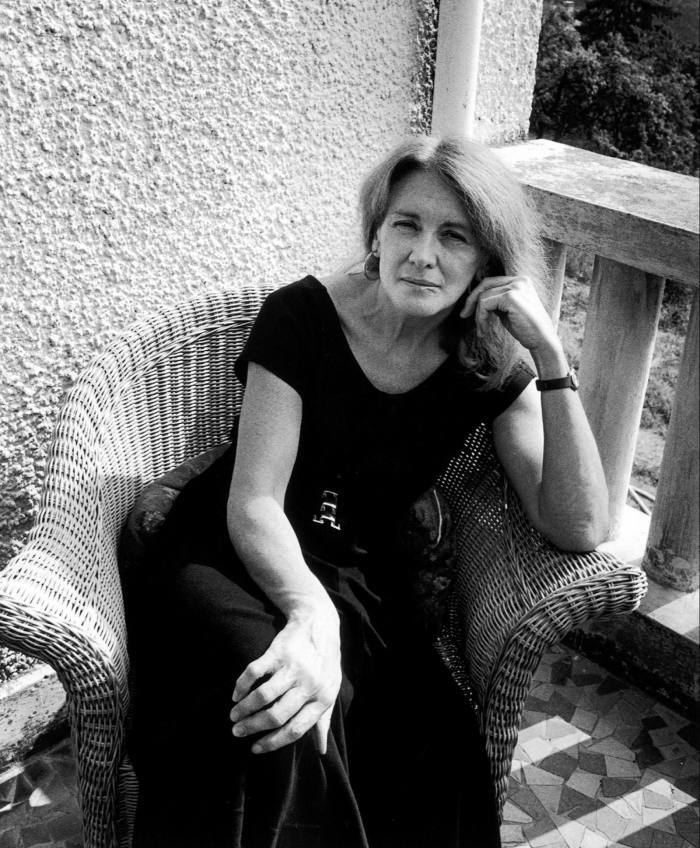What do you think?
Rate this book


112 pages, Paperback
First published December 19, 1983


"In order to tell the story of a life governed by necessity, I have no right to adopt an artistic approach, or attempt to produce something 'moving' or 'gripping'. I shall collate my father's words, tastes and mannerisms, the main events of his life, all the external evidence of his existence, an existence which I too shared.
No lyrical reminiscences, no triumphant displays of irony. This neutral way of writing comes to me naturally, it is the very same style I used when I wrote home telling my parents the latest news."
"In distinguished society, grief at the loss of a loved one is expressed through tears, silence and dignity. The social conventions observed by my mother, and for that matter the rest of the neighborhood, had nothing to do with dignity."
"I thought to myself: 'One day I shall have to explain all this.' What I meant was, to write about my father, his life and the distance which had come between us during my adolescence. Although it had something to do with class, it was different, indefinable. Like fractured love."
"His motto: Better to be the head of a dog than the tail of a lion.
Always this fear of being ashamed, out of place."
"I realize now that anything to do with language was a source of resentment and distress, far more than money."
"His greatest satisfaction, possibly even the raison d鈥櫭猼re of his existence, was the fact that I belonged to the world which had scorned him.
He liked to sing: C'est l'aviron qui nous m猫ne en rond 鈥� 'The paddle that is rowing us in circles'"







鈥淒esde luego no siento ning煤n placer al escribir, en este empe帽o por mantenerme lo m谩s cerca posible de las palabras y las frases o铆das鈥ada de poes铆a del recuerdo, nada de alegre regocijo. Escribir de una forma llana es lo que me resulta natural鈥︹€�No me cabe duda de que una de sus mayores preocupaciones fue encontrar el tono justo para este homenaje a la vida que representaban sus padres, o, m谩s que un homenaje, este dejar constancia de aquellos modos y maneras, de ese lugar al que ella ahora siente que traicion贸.
鈥淢e doblegu茅 a la exigencia del mundo donde vivo, que se esfuerza por hacerte olvidar los recuerdos del mundo anterior como si fueran algo de mal gusto.鈥�No puedo negar que parte del atractivo que la obra ha tenido para m铆 es que he sentido todo muy cercano. Aunque se trata de la vida en un pueblo franc茅s de la primera mitad del siglo pasado, no se distingue mucho de la de los a帽os 60 en un peque帽o pueblo espa帽ol, donde la vida entera est谩 expuesta a la vista y a la cr铆tica de todos.
鈥淯n pueblo donde los vecinos vigilaban la blancura y el estado de la ropa tendida a secar, y sab铆an si se vaciaban los orinales todos los d铆as.鈥�Pueblos d贸nde era dif铆cil salirse del redil, discrepar e incluso sobresalir.
鈥淣orma: escapar siempre a la mirada cr铆tica de los otros, siendo muy educado, no expresando opini贸n alguna, controlando minuciosamente los estados de 谩nimo que pueden ponerte en evidencia.鈥�He empatizado con su orgullo de clase obrera y con su orgullo culpable por haber podido escapar de ella, con su rabia hacia la condescendencia de 鈥渓os que dirigen, mandan y escriben en los peri贸dicos que 芦esas gentes son felices a pesar de todo禄鈥�, con su conflicto 鈥渆ntre dignificar un modo de vida considerado inferior y denunciar la alienaci贸n que conlleva. Porque esas formas de vida eran las nuestras, y casi pod铆a considerarse felicidad, pero tambi茅n lo eran las humillantes barreas de nuestra condici贸n.鈥� He empatizado con esa forma discreta de contar sin pretender 鈥渉acer algo 芦apasionante禄, 芦conmovedor禄鈥�, de expresar de un modo tan sencillo y demoledor lo que supone la muerte de un padre.
鈥溾€� intentando leer Los mandarines, de Simone de Beauvoir. No consegu铆a concentrarme en la lectura, al llegar a alguna p谩gina de ese libro mi padre ya no vivir铆a.鈥�


